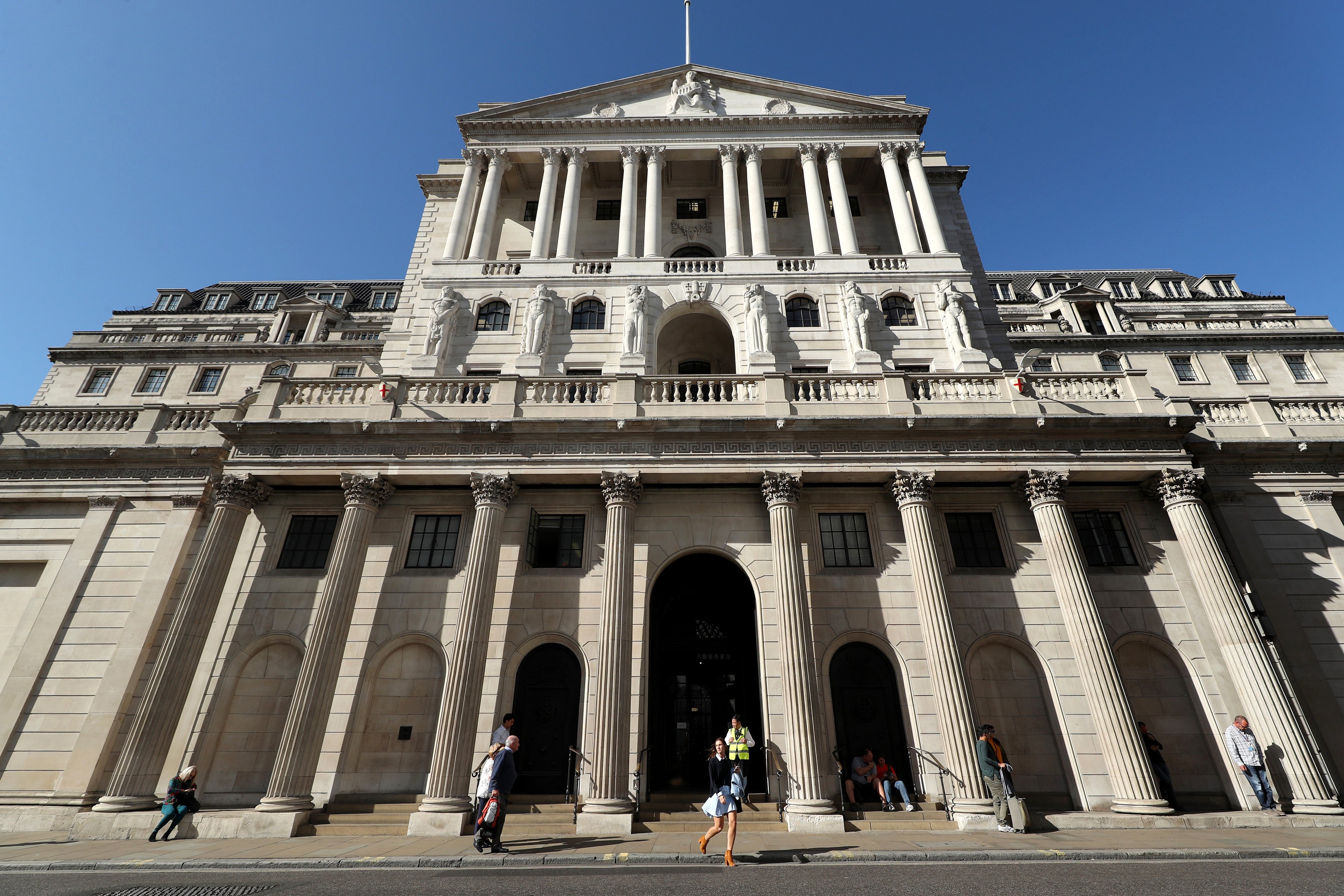Bank of England warns supply problems will slow UK economy as it holds interest rates at 0.1%
Growth ‘somewhat restrained’ by supply chain disruption

The Bank of England has held interest rates at a record low of 0.1 per cent and issued a more pessimistic forecast for the UK economy on the back of rising prices and widespread disruption to the supply of goods.
There had been growing speculation that the Bank would raise its benchmark interest rate due to rising inflation. A rate hike would likely have meant rising costs for millions of borrowers but analysts had warned that increasing the cost of borrowing too soon could choke off the economic recovery.
On Thursday, the Bank’s Monetary Policy Committee (MPC) voted to leave the base rate unchanged as it cautioned that the UK and world economies had grown more slowly that forecast in August.
“Growth is somewhat restrained by disruption in supply chains,” the MPC said in its latest quarterly report.
“Alongside the rapid pace at which global demand for goods has risen, this has led to supply bottlenecks in certain sectors. There have also been some signs of weaker UK consumption demand.”
Despite the problems, the MPC forecasts that the UK economy will return to its pre-pandemic level by the first quarter of next year.
It expects economic growth to slow down as the government withdraws its financial support measures. High energy prices are also expected to drag on the economy, the MPC said.
The MPC’s nine members voted seven to two in favour of holding rates at 0.1 per cent. Committee members Michael Saunders and Dave Ramsden had voted in favour raising interest rates to 0.25 per cent.
The central bank will also keep up its £895bn quantitative easing programme following a six to three vote in favour. Under the programme, the bank creates new money and buys up government debt.
The announcement came a day after the US Federal Reserve outlined its plans to begin withdrawing some of the money it has pumped into the economy.
Rising inflation has prompted central bankers to consider raising interest rates in the hopes of slowing the rising cost of living. However policymakers have had to balance the desire to keep price rises in check while supporting the economic recovery.
Two of the most significant factors causing the cost of living to rise have been shortages of supplies and workers, neither of which are expected to be solved by making borrowing more expensive.
Some borrowers have already seen their monthly interest payments rise in any case. Dozens of cheap mortgage deals have disappeared over the past month. This week there were 22 fixed-rate deals at less than 1 per cent, compared to 82 deals on 25 October, according to analysis by Defaqto.
The Bank said on Thursday that “that some modest tightening of monetary policy” was likely over the next three years in order to meet its target of keeping inflation within the target level of 2 per cent.
The MPC said it expects inflation to rise from its current level of 3.1 per cent to a peak of 5 per cent next April before falling back materially in the second half of next year before dropping just below the target level by 2024.
Subscribe to Independent Premium to bookmark this article
Want to bookmark your favourite articles and stories to read or reference later? Start your Independent Premium subscription today.

Join our commenting forum
Join thought-provoking conversations, follow other Independent readers and see their replies
Comments